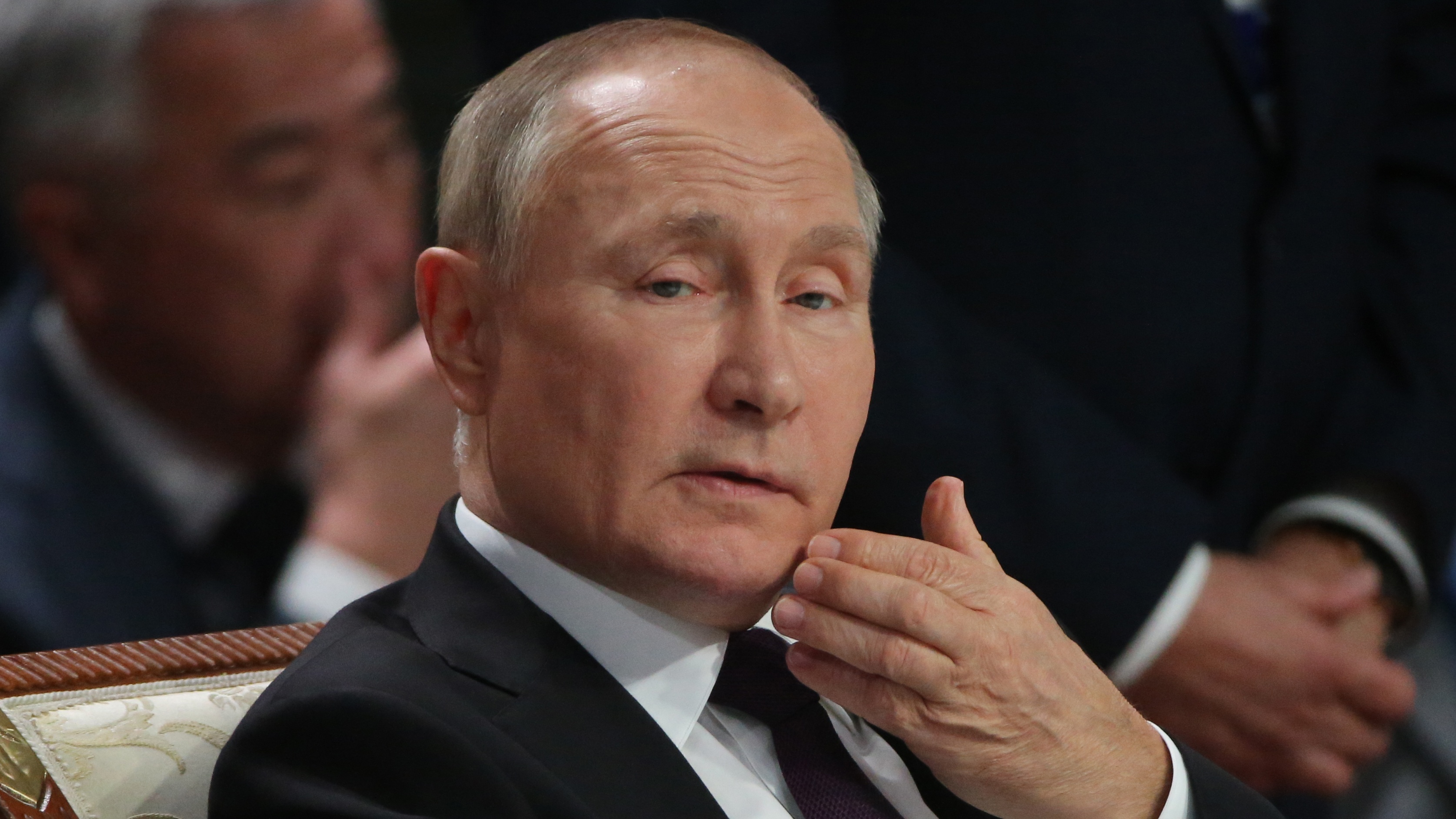‘Dirty bomb provocation’: what is Russia planning?
Western powers reject Moscow’s claims Kyiv could use a dirty bomb on its own territory

A free daily email with the biggest news stories of the day – and the best features from TheWeek.com
You are now subscribed
Your newsletter sign-up was successful
Ukraine has accused Russia of engaging in “dirty blackmail” after Moscow claimed without evidence that Kyiv is preparing to use a so-called dirty bomb on its own territory.
In a joint statement, the US, UK and France warned Russia against using “transparently false” claims. “The world would see through any attempt to use this allegation as a pretext for escalation. We further reject any pretext for escalation by Russia,” they said.
Ukrainian President Volodymyr Zelenskyy rejected the claims and called for a united international response. “If Russia calls and says that Ukraine is allegedly preparing something, it means one thing: Russia has already prepared all this,” said Zelenskyy in a video posted to social media.
The Week
Escape your echo chamber. Get the facts behind the news, plus analysis from multiple perspectives.

Sign up for The Week's Free Newsletters
From our morning news briefing to a weekly Good News Newsletter, get the best of The Week delivered directly to your inbox.
From our morning news briefing to a weekly Good News Newsletter, get the best of The Week delivered directly to your inbox.
At the request of Ukraine, the UN's nuclear watchdog, the International Atomic Energy Agency (IAEA), will visit the two sites at the centre of the Russian claims.
What has Moscow said?
On Sunday, Russia’s defence minister, Sergei Shoigu, claimed to his British, French and Turkish counterparts that Ukraine may be planning to use a so-called dirty bomb, a type of radiological dispersal device. The Guardian said that Shoigu “also spoke to Pentagon chief Lloyd Austin, but Moscow did not mention the dirty bomb allegations in its statement summarising that call”.
There has been widespread disbelief given that the Russian defence minister has cited no evidence for his claims that Ukraine could use a bomb to spread radioactive material.
But Moscow is “expected to repeat the allegation during a meeting of the UN's Security Council”, said the BBC. In a letter to UN Secretary-General António Guterres, the Russian representative to the council, Vassily Nebenzia, said his country would “regard the use of the dirty bomb by the Kyiv regime as an act of nuclear terrorism”.
A free daily email with the biggest news stories of the day – and the best features from TheWeek.com
What is a dirty bomb?
A dirty bomb is different from a nuclear bomb. The blast from the latter is generated by a nuclear reaction rather than conventional explosives so a nuclear explosion can be “thousands to millions of times more powerful”, according to a fact sheet from the US Department of Homeland Security (DHS). Nevertheless, the radioactive material from a dirty bomb “would likely fall to the ground within a few city blocks or miles of the explosion”, said DHS.
The Atlantic’s Tom Nichols explained that the “gunk” inside such a bomb could include “anything that is highly radioactive: nuclear reactor waste, the leftover pieces of a nuclear weapon, even radiological materials from a hospital”.
However, DHS said it is “very difficult” to design one that “would deliver radiation doses high enough to cause immediate health effects or fatalities in a large number of people”. The aim is therefore thought to be to contaminate areas to disrupt lives and to cause anxiety in people who think they have been exposed.
What is Russia up to?
Andriy Yermak, Zelenskyy’s chief of staff, dismissed Russia’s claims on a Telegram channel post on Monday, calling it “dirty blackmail” which “looks very primitive”.
According to the Financial Times, the Ukrainian minister “suggested Shoigu’s comments amounted to an attempt to pressure foreign backers into cutting supplies of weaponry and pressuring Kyiv into peace talks that would stall efforts to militarily liberate more than 15% of the territory in eastern and southern regions still occupied by Russia”.
The Washington-based Institute for the Study of War added that Shoigu’s comments were a sabre-rattling attempt to “slow or suspend western military aid to Ukraine and possibly weaken the Nato alliance in scaremongering calls with several Nato defence ministers”.
The Atlantic’s Nichols suggested it could also be part of “the preparation for a Russian ‘false flag’ operation”, whereby Moscow explodes its own dirty bomb, blames Ukraine and then demands “that Ukraine surrender or face nuclear retaliation”.
Sorcha Bradley is a writer at The Week and a regular on “The Week Unwrapped” podcast. She worked at The Week magazine for a year and a half before taking up her current role with the digital team, where she mostly covers UK current affairs and politics. Before joining The Week, Sorcha worked at slow-news start-up Tortoise Media. She has also written for Sky News, The Sunday Times, the London Evening Standard and Grazia magazine, among other publications. She has a master’s in newspaper journalism from City, University of London, where she specialised in political journalism.